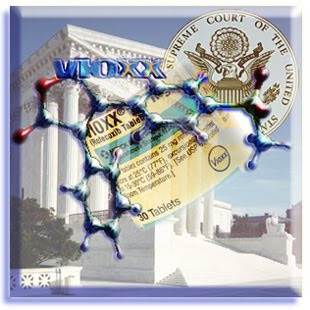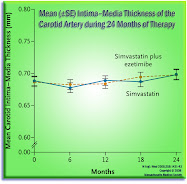 For well over a decade, we had historically covered the federal finasteride (Propecia®) products liability class action. Here is one of literally hundreds of those posts, as background. [Feel free to search the term "Propecia" in the above left search bar/box, for them all, sorted by relevance -- or date.]
For well over a decade, we had historically covered the federal finasteride (Propecia®) products liability class action. Here is one of literally hundreds of those posts, as background. [Feel free to search the term "Propecia" in the above left search bar/box, for them all, sorted by relevance -- or date.]
We had studiously avoided any mention of a potential off target effect, related to suicidal ideation, though several public documents made at least passing mention of that possibility, feeling it would be intemperate to make such an association, if the US FDA had not done so. In any event, in the end, the EU authorities added a warning to the labeling for the EU version of finasteride -- arguing essentially that even though the risk looked small, the male pattern baldness drug was not for any life-threatening condition -- and so, since it was taken for strictly cosmetic reasons, the public ought to know what all the even remotely possible off target effects might be. With hind-sight, that may have been a wiser approach than the one our own US FDA took.
But this post is not intended to (belatedly) take any position on the underlying data, or adverse event reports, from over the past decade. We post it solely to let the readership know that Reuters was able to win an unsealing order as to certain of those finasteride Merck documents -- and the readers (if interested) ought to decide for themselves what to make of them. Here's a bit of the Reuters reporting:
. . .As early as 2009, Merck knew of more than 200 reports of depression, including suicidal thoughts, in men taking Propecia, according to an internal “risk management” assessment from that year. The company decided there were too few reports of serious depression and suicidal behavior and not enough specifics about those cases to warrant more than “routine” monitoring of safety data.
In 2011, two years after the Merck risk analysis, the FDA was weighing a company request to add “depression” to the drug’s label as a potential risk, with no warnings related to suicide. FDA analysts disagreed about adding a warning related to suicide, according to previously unreported government documents. But the regulator ultimately agreed with Merck’s request on the grounds that the number of suicides was lower than one would expect in this group of patients. . . .
And so, make of that. . . what you will. I have, over the course of the last twelve years, come increasingly to the view that Merck is no longer being run by ethically-compromised profiteers -- even as it makes ever increasing. . . profits. It has turned away from many of the questionable practices under former CEO Dick Clark, and become a true global citizen under Kenneth Frazier. So, my view is that while the company still makes mistakes -- all companies do -- it was never, and likely will never again be. . . as morally vacuous -- and putrid as Schering-Plough was -- under "Fast" Fred Hassan. Now you know, grinning. . . .
नमस्ते
















1 comment:
Now why would anyone expect Merck to warn about the possibility of suicide with a drug for baldness.
When there was active suppression of suicide risk when double blind placebo controlled drug trials of a Merck drug demonstrated MULTIPLE CASES of SUICIDE WITH DRUGS and ABSOLUTELY NO RISK with PLACEBO!
Post a Comment